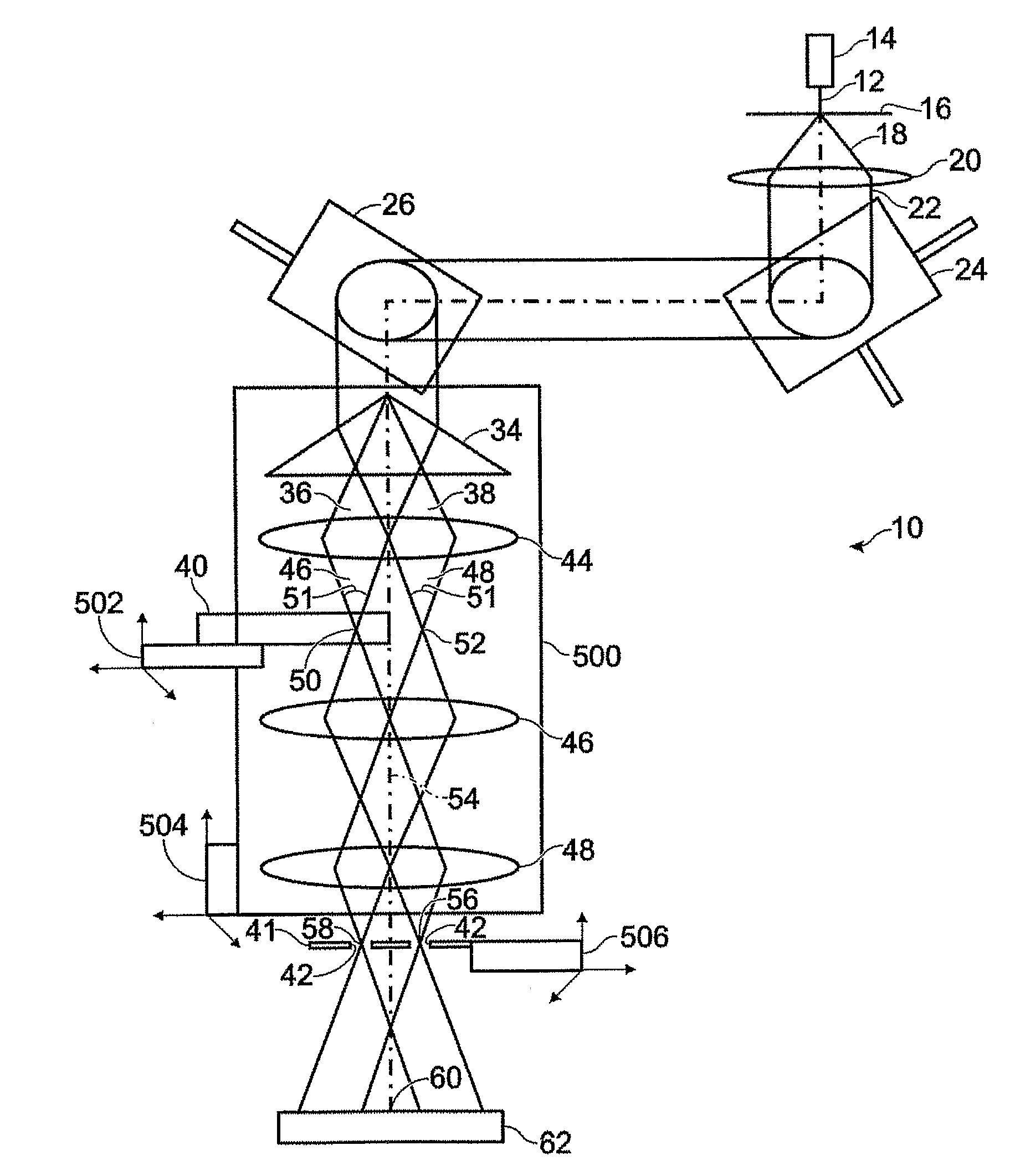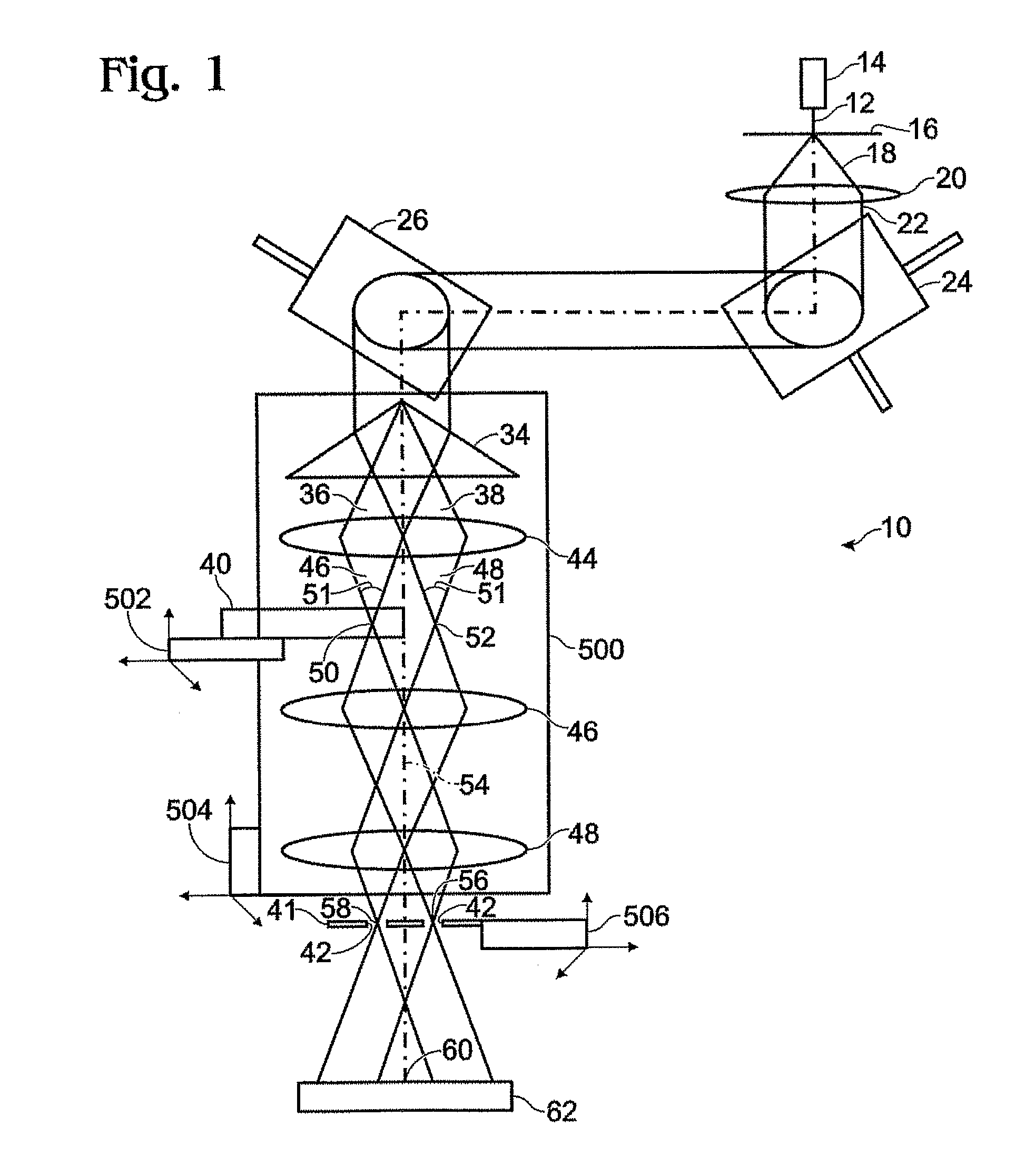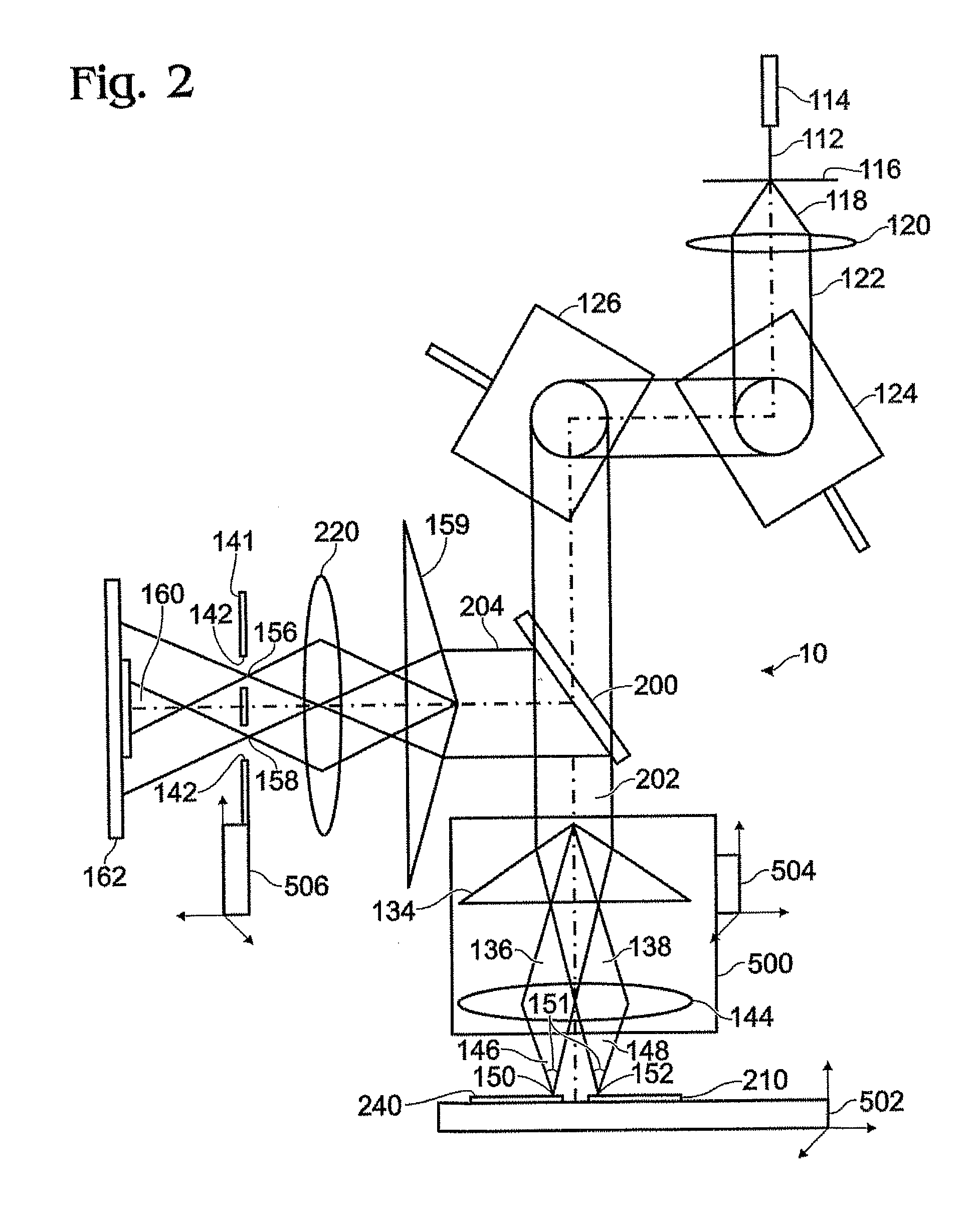Confocal Scanning Holography Microscope
- Summary
- Abstract
- Description
- Claims
- Application Information
AI Technical Summary
Benefits of technology
Problems solved by technology
Method used
Image
Examples
example 1
[0123] In objects comprising of plasma, gases, liquids, and solids, there are many unanswered questions to simple states of matter, such as the temperature and the composition existing at interfaces between immiscible and miscible fluids, a container and its contents, and within fluids having various states, such as within a simple flame burning fuel during combustion. The use of this CH microscope will answer many of these questions. As well, CH microscopy can be used in diagnostics method to non-intrusively observe the variations in temperature within the body such as at the interfaces between body organs and their surroundings. Since infrared radiation and acoustic waves (ultrasound) easily pass through the body, and they can be precisely focused and be made highly coherent, they can be used by the CH microscope in order to see the body's internal structure, and to measure its composition and temperature. Once the internal body can be seen by the CH microscope, by varying the int...
example 2
[0124] Because the CH microscope employs a holography method, it measures the “absolute” phase information of the object, which is advantageous for precise measurements of fundamental physical phenomena, and which is also advantageous for performing a high-level, quantitative study. As well, because electromagnetic radiation sources, such as electrons, Lasers and acoustics, can now be obtained having very good beam coherence, amplitude and phase images of large objects are possible, on the order of many centimeters. It will be possible with the development of new optical focusing material to be able to observe much larger objects in the future.
example 3
[0125] Since modern lasers have very good beam coherence, the amplitude and phase images of large objects are possible with the confocal holography microscope, on the order of many centimeters. With the development of larger optical components for focusing larger beams, such as the infrared beams, the microscope may be used to observe even larger objects.
Further examples are provided by way of FIGS. 5-9.
PUM
 Login to View More
Login to View More Abstract
Description
Claims
Application Information
 Login to View More
Login to View More - R&D
- Intellectual Property
- Life Sciences
- Materials
- Tech Scout
- Unparalleled Data Quality
- Higher Quality Content
- 60% Fewer Hallucinations
Browse by: Latest US Patents, China's latest patents, Technical Efficacy Thesaurus, Application Domain, Technology Topic, Popular Technical Reports.
© 2025 PatSnap. All rights reserved.Legal|Privacy policy|Modern Slavery Act Transparency Statement|Sitemap|About US| Contact US: help@patsnap.com



